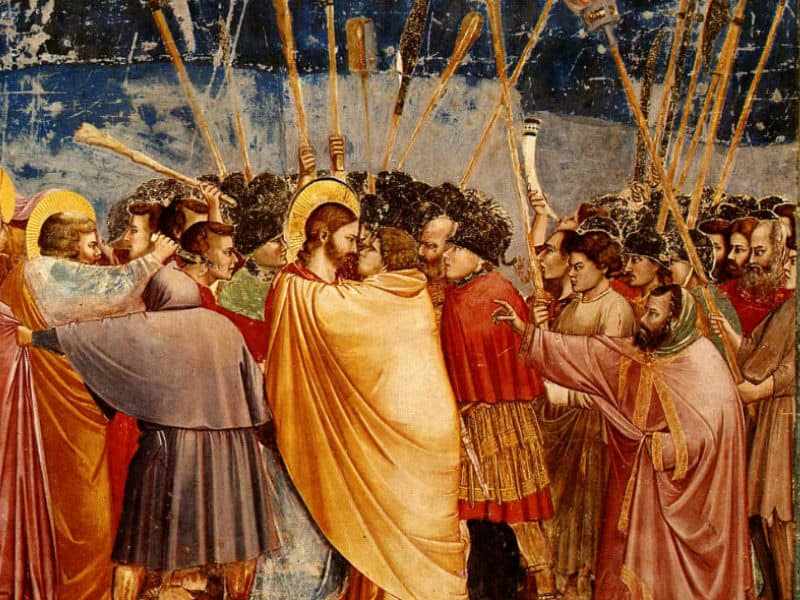
Her latest book, "Beyond Belief: The Secret Gospel of Thomas," focuses on religious claims to ultimate "truth." She contends that, as Christianity became increasingly institutionalized, it became more politicized and less pluralistic.
She was interviewed about her latest work by Beliefnet's religion producer, Laura Sheahen.
In describing your earlier work, you say the 1945 discovery of the Nag Hammadi ancient Christian texts "allowed the heretics to speak for themselves." What did the heretics say?
What they found in that discovery was over 50 early Christian texts that we just had never known about. We knew there were terrible heretics who said terrible things, but we didn't have what they actually said, we only had what their enemies said. It's like reading what one political party says about the other, trying to reconstruct their opponent's viewpoints. It really doesn't work well at all.
So for the first time we had a very wide range of early Christian sources. And we began to see very clearly that what we call Christianity is a rather small selection, a small slice, of a much wider horizon. What survived as orthodox Christianity did so by suppressing and forcibly eliminating a lot of other material.
It's hard to characterize these texts in one simple way, because there's a whole library of different things. But most of them are about the premise of finding access to God for oneself. That's why the monks who hid them liked them, and that's why the bishops didn't like them, because if you can find God for yourself you might not need a church or bishops or the whole ecclesiastical apparatus.
One of the biggest "finds" was the Gospel of Thomas (read the text), which some people call a gnostic gospel. Your new book puts forward the hypothesis that the canonical Gospel of John may have been written in response to Thomas' gospel, to refute Thomas.
Yes. Many people have pointed out that the two gospels have a lot in common. They are both different from the other gospels we know, as symbolic and poetic interpretations of Jesus' teaching. But they have a very different practical turn. They both speak about Jesus as the divine light of the world that comes into the world, and the divine energy of God manifested in human form. But the message of the Gospel of John is that Jesus alone is that divine presence among us. Thomas' gospel suggests that Jesus taught something quite different, which is that everyone, in fact all being, came from that divine source [and that we can access that divinity on our own].
Yet you say in the book that the very 'heretics' who embraced Thomas' ideas were drawn to the Gospel of John.
It is surprising. They could read [John] as poetry, with a wide range of interpretation. If you can read it that way, you can find things in it that Christians have found in it for hundreds of years: mysticism, poetry. It's precisely for that reason that one of the second-century church fathers, Irenaeus, said, "The Gospel of John is all right, but you have to read it my way." His way meant Jesus alone offers access to salvation and that believing in him is the only way to truth, and that not believing is a sure path to damnation.
Many people point to Jesus' statement in John 14:6: "No one comes to the father but by me." But in the totality of the accepted Christian canon, there are passages that do indicate there's a spark of the divine in everyone. There's "The kingdom of God is within you" in Luke, as you mention in the book, or Paul's "your body is the temple of the Holy Spirit." Other parts of the Christian canon seem to put forward this more open view that you say is characteristic of Thomas' gospel.
It shows that the teaching of Jesus was recorded and transmitted in various ways. These suggestions [of divinity within oneself] are absolutely there, in Luke and all over the place, if you're looking for them. But they were later placed in a context of a much more strict interpretation, so they're often read that way.
What fascinated me in some of these texts that were discovered is that there were people who read the Gospel of John and Thomas' gospel as entirely compatible. We have texts and poems that show that: for example, a text called the Round Dance of the Cross, or one called the Gospel of Truth, that uses passages from both Thomas and John. I think they might well be regarded as congenial if you didn't have a system of interpretation that says they can be read in only one way.
You say that the figure of 'Doubting' Thomas in the Gospel of John was a direct refutation of Thomas' gospel.
We don't actually know if the person who wrote the Gospel of John had a written copy of Thomas because we don't know exactly when it was written. But I think it's clear that whoever wrote the Gospel of John knew these kind of teachings because the language is so similar to his own. He knew them very well. And yet he thought someone was taking them in the wrong direction, and that's what he set out to correct.
So when 'Doubting Thomas' felt Jesus' nail wounds and exclaimed, "My Lord and my God," that was a way for the author of John's gospel to tell the author of Thomas "You've got it wrong, there isn't necessarily this universal access to God, you have to go through Jesus, who is Lord"?
Yes, it's really a way to tell people who follow that kind of teaching--you might call them 'Thomas Christians'--that even their own apostle realized at a certain point that he was absolutely wrong, and that John was right. It's quite a wonderful device. And it worked! If I mention Thomas, most people say, "Oh, you mean Doubting Thomas."
Your book talks about the followers of a man named Valentinus and others who had a more esoteric or gnostic approach to Christianity. You imply there was a divide between "simple Christians" who had a more literal take on their beliefs, and the "seeker Christians," the Valentinians. Could you characterize these 'spiritual Christians'?
They felt that faith is necessary, but as a first step. It's not where you stop, it's where you start. After that, you start exploring. You try to understand and verify in your own experience and seek. They always love the saying of Jesus: "Seek and you shall find."
People who are comfortable with very clear boundaries and group definitions don't like the instability and ambiguity of people who say they are more advanced Christians or they don't have to do what the bishop says.
I was trying to understand the politics of the early Christian movement. We've had one side of an intense controversy available to us. Now we also have the other.
It turns it from a monologue, which always puzzled me, into a dialogue.
In your book there are powerful descriptions of martyrdoms: Christians being ripped apart by wild animals, etc...
It's startling and very vivid. Because this was a criminalized group, a group where to belong put you in the category of potentially prosecutable criminal. Given that risk, it was intolerable for certain leaders to have any ambiguity. They had to clarify who was in and who was out.
Were the heretics/spiritual Christians just as vulnerable to persecution and martyrdom as their orthodox counterparts?We have different evidence about that. Irenaeus says, "The heretics don't get persecuted the way we do, because if someone says 'Are you a Christian?' they say something ambiguous"--because it's not that important to them.
On the other hand, Irenaeus says that the heretics do get martyred but they aren't real martyrs because they aren't real Christians [laughs].
Tertullian says in Africa that they become heretics in order to evade a straight answer to the question: "Are you a Christian?" If you say yes, you can be arrested and put to death. We know that some thought it wasn't necessary to say 'yes' to that and get killed by the magistrate. But orthodox Christians thought blood witness was very important to the movement.
It seems like a big divide between the two early Christian groups was reading allegorically versus taking things at face value.I think that's absolutely right. You can see that today. Fundamentalism does mean reading quite conservatively and literally, saying "the Bible is the word of God and we have to follow it. What it says is this."
We could have had a richer kind of Christianity, one open to a wider range of understanding. On the other hand, Christianity could have been more like a swamp--a muddy religious current mixed up with all the other traditions that flow into it. It's a hard question to answer, but I think we might have had something more like what one sees in say, Eastern Orthodox churches, which have a greater openness to the interpretation of many passages. If you were queen for a day and were in charge of creating a new Christian canon, what (if anything) would you drop from the current New Testament books, and what would you add from the gnostic collection?
I would add the Gospel of Thomas. I don't think I'd drop anything. I'm the inclusive type: the more the better. Anything else besides Thomas?
There are wonderful texts from this collection. There's one called Thunder Perfect Mind which is a poem in the voice of a feminine divine power. There's Allogenos-an ancient meditation text which is not specifically Christian. But monks liked it for the same reason monks today read Buddhist texts about meditation. If you had to choose one Christian text you couldn't do without, what would it be?
I'd have to take two: The Gospel of Mark and Thomas' gospel.
Your book includes several personal vignettes about your own spiritual journey. Where has it led you? Are you still visiting the Church of the Heavenly Rest, or exploring other traditions?
Yes to both. I find I can participate in Christian tradition with more open-heartedness, because I don't feel constricted by the question "Do I believe this? Do I believe that?" which I do think is narrowing. I'm not saying belief doesn't matter, but it's been much overrated in Christianity. It's certainly not the only issue. So yes, I do participate sometimes, and I find myself open to other traditions and practices.

